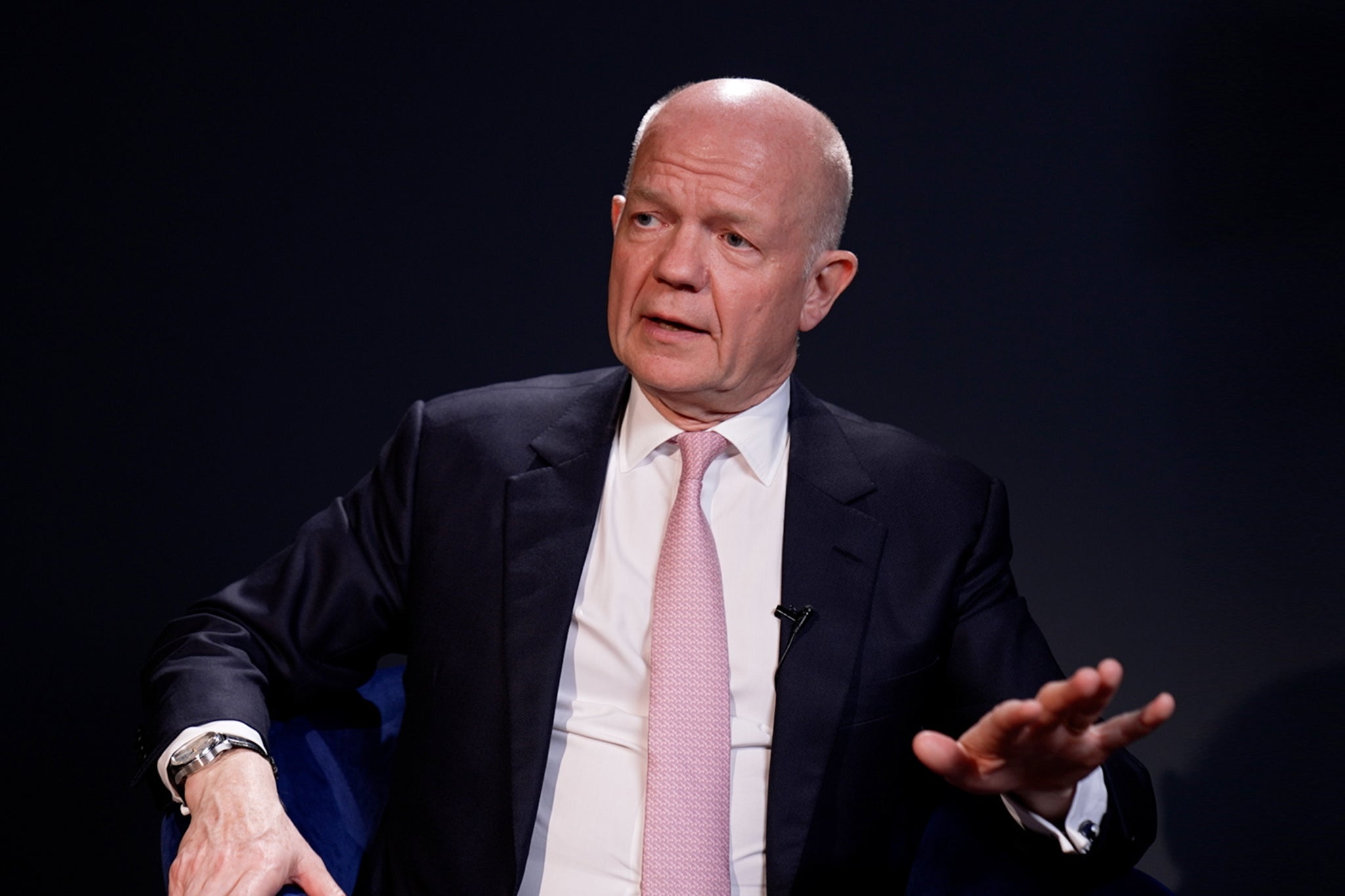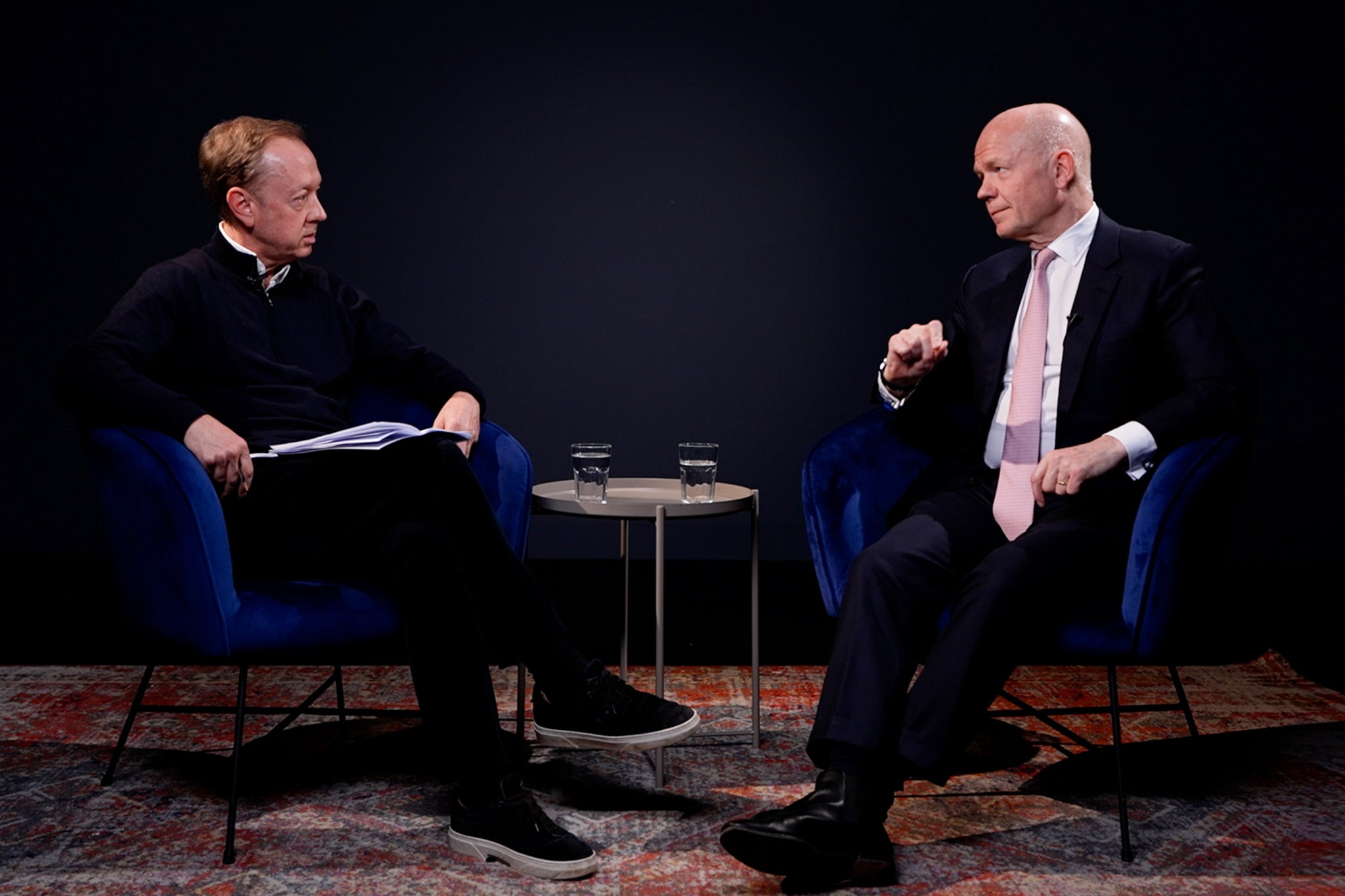William Hague has criticised Peter Mandelson’s bid to become the UK’s new envoy in America as well as taking over the top job in the British university sector.
The former Conservative leader spoke out as tensions flared in the battle between the two men to become chancellor of the University of Oxford. Lord Hague said the two roles would be “incompatible” as he dismissed a jibe by the former Labour cabinet member Lord Mandelson that it was time to end the “Tory monopoly” of Oxford.

In a wide-ranging interview with Independent TV, Lord Hague also called for action in the wake of concerns about so-called “cancel culture”, saying that students cannot expect the real world to be full of “echo chambers of like-minded people”.
Speaking ahead of next week’s announcement of who will be the new Oxford chancellor, Lord Hague:
The contest to be awarded the coveted Oxford role has come down to a fight between the two old political warhorses. Lord Mandelson masterminded Sir Tony Blair’s three election victories, including in the 2001 election, which forced Lord Hague to resign as Tory leader.
Notwithstanding the defeat, Lord Mandelson was at Sir Tony’s side as skilled debater Lord Hague regularly outwitted him at the Commons despatch box.
Now the two have crossed swords again.
Lord Mandelson, who is widely tipped to become Britain’s new ambassador in Washington, has claimed that he is capable of holding both positions because the role of Oxford chancellor is merely a “ceremonial figurehead”.
But Lord Hague said Lord Mandelson could not possibly do the Oxford job while living on the other side of the Atlantic.

“It is important to be accessible and to be there [in Oxford],” Lord Hague stressed. “You need to be active and energetic.
“I am diplomatically saying it is not compatible with full-time employment in another country. Being a ‘ceremonial figurehead’ was only one part of the job. It has changed in the last 20 years.
“Going to ceremonies and being a figurehead ... also requires physical presence in the country and in the universities. But these days it involves much more ... [such as] fundraising and explaining the brilliance of Oxford. It’s really important to be active and energetic.
“It is necessary for the chancellor to be able to go there frequently.”
Lord Hague also rejected Lord Mandelson’s claim that it was time for a Labour chancellor on the grounds that the post should not be a “Tory monopoly” – a remark that was seen as a reference to the outgoing chancellor of Oxford, Christopher Patten.
Lord Mandelson had got his facts wrong, said Lord Hague: “There have been good chancellors – and they weren’t all white male Tories.”
Roy Jenkins, who served as a Labour cabinet minister in the 1960s and was “one of the greatest figures in the Labour Party”, had also held the post, he pointed out, adding: “To think of it as a Tory or Labour chancellor is a mistake. It is important to have the right candidate, irrespective of politics or gender. It is not a political position.”
He also called for action in the wake of concerns about so-called “cancel culture”, whereby students have tried to ban speakers with controversial views.
Lord Hague said he opposes “trigger warnings before Shakespeare plays” that alert the audience to violent scenes in plays such as Macbeth and Hamlet.
“For 500 years, people have been coping with those statements,” he told The Independent, adding that students must be ready to face “the debating chambers of the world” rather than engaging only in “echo chambers of like-minded people, where people stop hearing contrary opinions”.
Warning against what he described as a “snowflake generation”, he said students must be prepared for “a pretty dangerous world ... with more polarisation”.
Lord Hague said he “absolutely” stood by his claim, made on the eve of Mr Trump’s victory in the US presidential election, that the incoming president “represents a dark cult that threatens freedom everywhere”.
He urged the Conservatives not to attempt to embrace Mr Farage as a result of Mr Trump’s success.
“That would be a mistake. It’s not being conservative to advocate huge budget deficits, move against free trade, refuse to defend a democratic nation under attack [referring to Ukraine].
“Neither Ronald Reagan nor Margaret Thatcher would recognise that as being conservative.”
The final voting for the chancellor position takes place next week.



.png?w=600)



